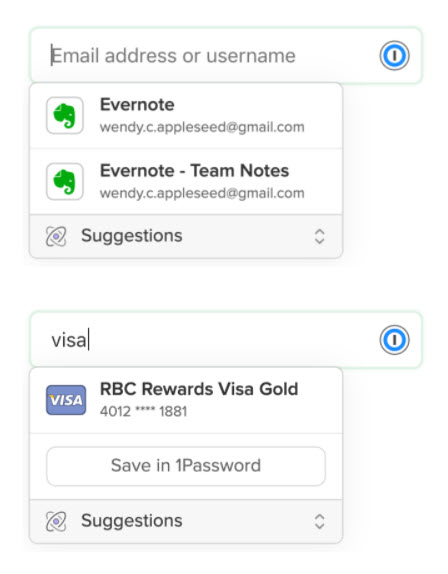

While these third-party providers are intended to streamline the login process, 26% of respondents say they have been forced to abandon an activity altogether because they couldn’t find a way to log in.Īdditionally, nearly half of respondents (46%) have created duplicate accounts, either because they couldn’t find or access the login details, or because they felt it was easier to just set up a new account.ġPassword’s browser extensions remove guesswork for users, allowing them to automatically sign into accounts with the click of a button. Among the single sign-on methods most used for personal use were Facebook (51%), personal email (50%) and Twitter (27%). Our new browser extension feature alleviates this by allowing users to sign in to their favorite apps and websites with one click.”, Won continued.ġPassword’s recent Unlocking the Login Challenge report explores the impact that login complexity can have on productivity and security in both the workplace and at home. “While single sign-on is helpful in reducing the number of passwords needed, it’s still a hassle for people to keep tabs on which third-party provider was used.

“Logging in should be effortless, be it with a traditional username and password, a Google or Apple account or passkeys,” said Steve Won, chief product officer at 1Password.

Browsers supported for this launch include Chrome, Firefox, Brave and Edge. Users can now automatically save, store and autofill logins with third-party provider credentials – including Google, Apple, Facebook, Twitter, Microsoft, Okta and GitHub – in 1Password and bypass the need for unique usernames and passwords. 1Password has unveiled a new ‘sign in with’ browser extension feature to help users get to where they’re going, more quickly.


 0 kommentar(er)
0 kommentar(er)
